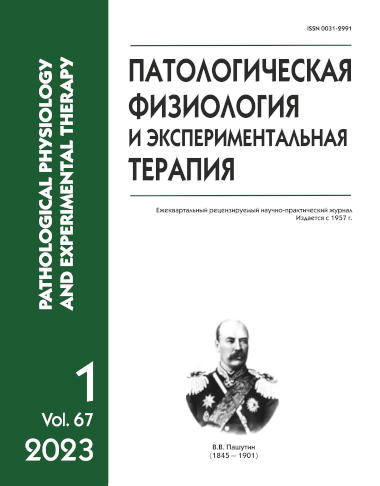Clinical, neurophysiological and laboratory features of autonomic disorders in young and middleaged adults
Abstract
Introduction. The problem of dysfunctional vegetative disorders (DVD), the etiology and pathogenesis of which are largely unclear, is of great clinical importance and attracts the attention of both neurological clinicians and pathophysiologists working in the field of neuropathology. Aim. To study clinical, neurophysiological, neuropsychological, and laboratory features of AD in young and middle-aged individuals. Methods. The study included 46 AD patients aged 18 to 59 years with rare anxiety attacks. The control group included 20 healthy individuals. Clinical symptoms, autonomic disorders, cognitive disorders, anxiety, and depression were evaluated. The method of dermal-sympathetic evoked potentials (DSEP) was used for evaluation of the autonomic resistance. Laboratory tests included measurements of blood insulin-like growth factor 1 (IGF-1), thyroid-stimulating hormone (TSH), and prolactin by chemiluminescence immunoassay with an Immulite 2000 Immunoassay System (USA). Results. All AD patients had headache, asthenic syndrome, sleep disorders, and emotional lability. Autonomic disorders included hyperhidrosis, meteosensitivity, and low tolerance of high and low temperatures. According to the DSEP study, 57.8% of AD patients showed a predominance of sympathetic reactions, 31.1% showed a predominance of parasympathetic reactions, and 11.1% showed a mixed type of autonomic reactions. Increased sympathetic responses were observed in patients aged 18‑35 years whereas in patients aged 36‑59 years, the prevalence of sympathetic and parasympathetic responses was similar (42.1%). AD patients had increased levels of IGF-1 and prolactin. Conclusion. The study shows a high prevalence and variability of clinical symptoms in AD patients. These results confirmed the relevance of further studying AD in different age groups of patients with various types of autonomic reactions.






